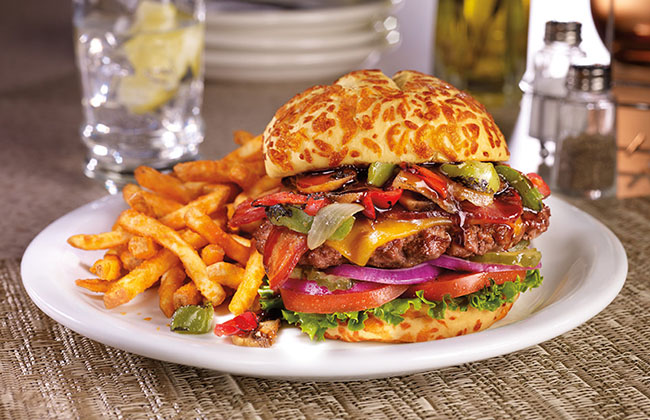Clean your kitchen to avoid overeating: Cluttered kitchens found to encourage snacking
05/29/2018 / By Russel Davis

A study carried out by researchers at Cornell University revealed that being in a cluttered kitchen and feeling out of control might be detrimental to body weight. According to experts, people who stay in a messy and chaotic environment tend to consume extra calories and pile on more pounds.
The research team enrolled 98 female participants as part of the study. The participants were separated into two groups and were instructed to wait for another person in two different kitchens. One group was assigned to wait in a messy kitchen with newspapers on the table, dishes in the sink, and the phone ringing. The other group was assigned to an organized and quiet kitchen. Both kitchens had bowls of cookies, crackers, and carrots.
“Being in a chaotic environment and feeling out of control is bad for diets. It seems to lead people to think, ‘Everything else is out of control, so why shouldn’t I be?’ I suspect the same would hold with males,” said lead author Lenny Vartanian.
Some of the volunteers were then asked to recall and write about a time when they considered their lives to be out of control, while other participants were instructed to recall and write about a time when they felt in control. The results revealed that participants who waited in the messy kitchen ate 53 more calories from cookies in 10 minutes’ time. In contrast, participants who reported being in control ate 100 fewer calories than those who felt out of control. (Related: Habitual eating is caused by the environment.)
“Although meditation, as a way of feeling in control, might be one way to resist kitchen snacking, for some it’s probably easier just to keep our kitchens picked up and cleaned up,” co-author Brian Wansink said.
“The notion that places — such as cluttered offices or disorganized homes — can be modified to help us control our food intake is becoming an important solution in helping us become more slim by design. It’s important to know whether a food environment can actually cause you to, unknowingly, overeat,” Wansink added.
The findings were published in the journal Environment and Behavior.
Declutter your kitchen with these smart and easy steps
An article posted on The Spruce website listed eight smart tips to help organize and remove clutter from the kitchen, especially really small ones. These steps include:
- Testing the appliances — Choose kitchen appliances wisely in order to prevent clutter. Most cutting, shearing, and slicing can be done by knives alone.
- Choosing smaller tableware — Downsizing the kitchen table, crockery, and cutlery may help keep the kitchen organized.
- Choosing more functional cookware — Small pots or ornamental kitchenware might be pleasing to the eyes, but regular and more functional alternatives may help reduce clutter in the long run.
- Getting less bulky items — Bulky kitchenware, pots, and pans eat up a good deal of space and add to kitchen clutter.
- Taking out the duplicates — Moving households can be tricky, especially when it involves kitchenware and equipment. It is important to take note of possible duplicate items to reduce mess. Likewise, it may prove beneficial to give old equipment away if a new one is at hand.
- Knowing what you do best — Not everybody is skilled in the kitchen. Assess your culinary skills and identify your areas of strength so that only the most appropriate kitchen equipment is used in the area.
- Choosing multi-functional products — Equipment such as hand mixers and oven- and fridge-safe dishes may help minimize the use of multiple kitchen equipment and containers, which in turn may spare the kitchen some space, as well as reduce clean-up time.
- Routinely auditing the kitchen — It is important to conduct routine inspection of the products in the kitchen in order to quickly identify and eliminate those that were already past their expiration dates.
Visit Slender.news to learn more tips and tricks on how to manage your weight properly.
Sources include:
Tagged Under: BMI, body mass, body weight, cluttered kitchens, disorganized homes, easy remedy, environment, extra pounds, mind body science, obesity, slender, weight gain, weight loss, weight loss plan




















